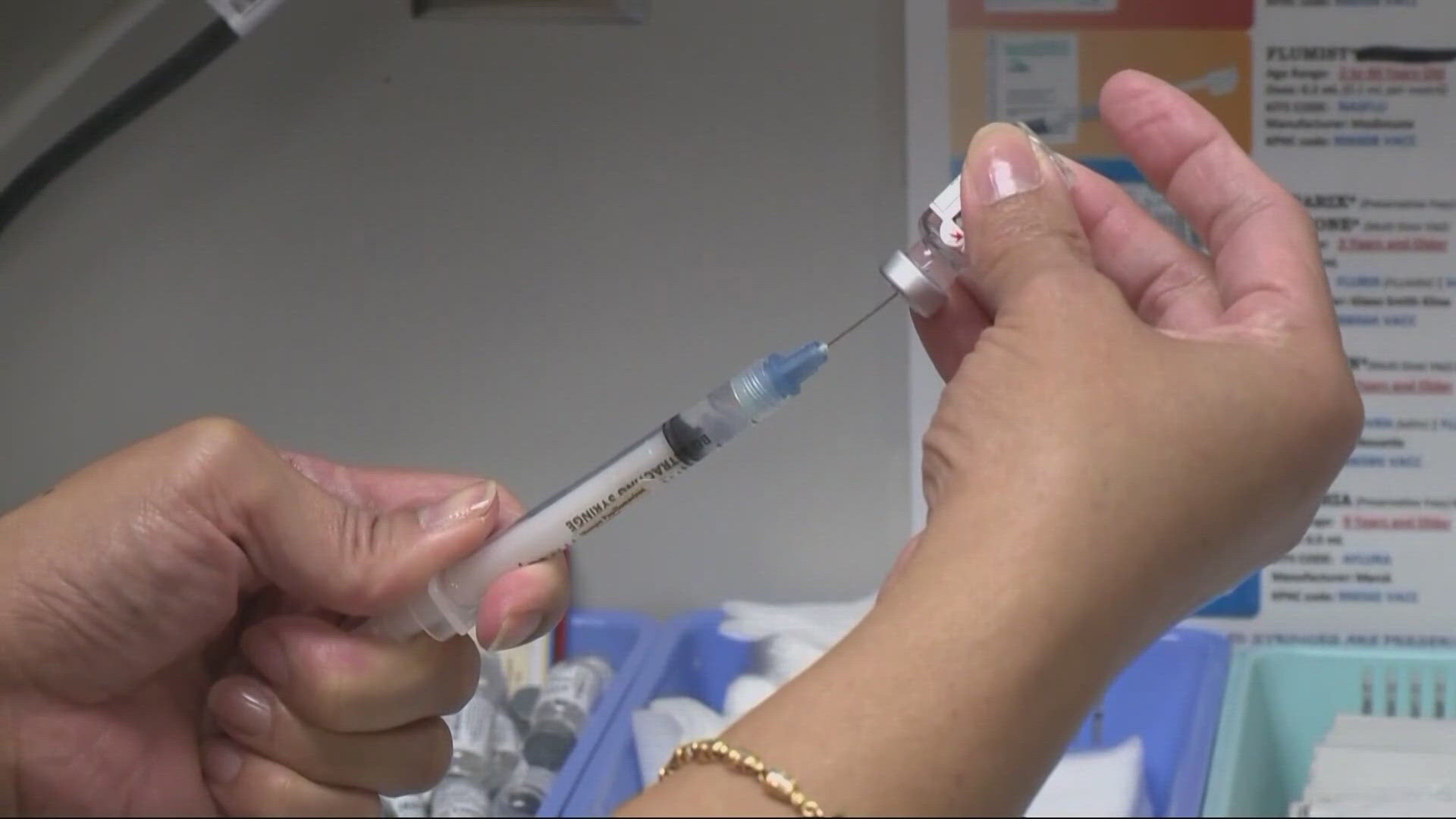SALEM, Ore. — The Oregon Health Authority reported 2,331 new confirmed and presumptive COVID-19 cases on Wednesday, nearly doubling the count from a week ago and putting the daily numbers back in a range not seen since the height of the delta wave four months ago.
The delta variant sent Oregon's single-day new case numbers surging in late July, peaking at 3,207 on Aug. 27 and remaining above 2,000 per day until Sept. 21.
The last individual day with more than 2,000 new cases was Sept. 29. The numbers dropped steadily through the fall months as the delta wave receded, and by the second week of December Oregon was regularly seeing fewer than 1,000 new cases per day.
That trend reversed last week, with 999 new cases reported on Dec. 21, 1,197 on Dec. 22, 1,350 on Dec. 23 and 1,900 on Tuesday.
Dr. Paul Cieslak, medical director for communicable diseases and immunizations in OHA's Public Health Division, said last week that the jump in case numbers likely signaled the start of an expected new wave of cases caused by the omicron variant.
There were 6,987 new cases reported last week overall, according to a news release from OHA, a 25% increase over the previous week despite a 7.1% decline in reported test results for the week. The positive test rate rose to 7.4% in the week of Dec. 19-25, from 4.8% the week before.
The new cases reported Wednesday bring the state's total to 418,333. There were also nine new deaths reported Wednesday, bringing the state's total to 5,640.
Statewide hospitalizations remained on a downward trend last week, with 185 reported patients — a 35% drop from the week before and the lowest weekly total since late July, right before the delta surge began.
Early data suggests that omicron tends to lead to less-severe illness and a lower chance of hospitalization, particularly in vaccinated individuals, but it's also more contagious than earlier variants and better at avoiding antibodies and infecting vaccinated people.
State health officials warned earlier this month that even if the hospitalization rate is lower, the sheer number of cases expected in the omicron wave could still create an overwhelming number of hospitalizations.
Oregon Health and Science University released a revised forecast last week that predicted roughly 1,250 hospitalizations at the peak of the omicron wave, down from an initial estimate of 2,000. The delta wave peak was 1,187.
The omicron wave is forecasted to ramp up in January and peak in February. Gov. Kate Brown announced a goal earlier this month getting booster shots to 1 million Oregonians by the end of January. As of Wednesday, another 833,287 residents need boosters to hit that target, according to OHA.
Washington has also seen a significant spike in COVID cases in the past week, according to a Wednesday news release from the state's Department of Health, and public health officials said omicron is likely to blame. Nationally, average daily new cases have soared to an all-time record of 265,000.



